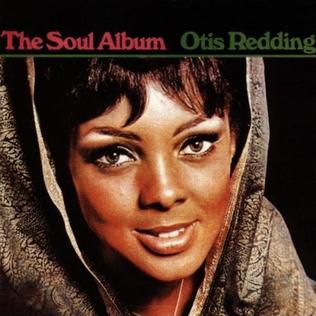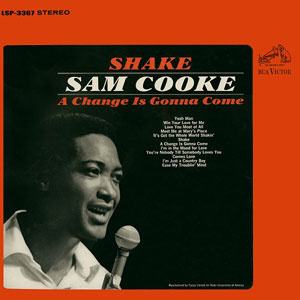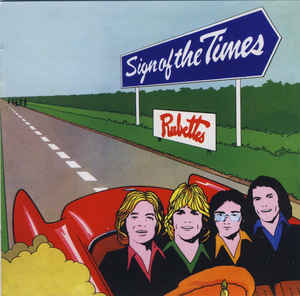
The Rubettes are an English pop/glam rock band put together in 1974 after the release of "Sugar Baby Love", a recording assembled of studio session musicians in 1973 by the songwriting team of Wayne Bickerton, the then head of A&R at Polydor Records, and his co-songwriter, Tony Waddington, after their doo-wop and 1950s American pop-influenced songs had been rejected by a number of existing acts. Waddington paired the group with manager John Morris, the husband of singer Clodagh Rodgers and under his guidance, the band duly emerged at the tail end of the glam rock movement, wearing trademark white suits and cloth caps on stage. Their first release, "Sugar Baby Love" was an instant hit remaining at number one in the United Kingdom for four weeks in May 1974, while reaching number 37 on the US chart that August, and remains their best-known record. Subsequent releases were to be less successful, but the band continued to tour well into the 2000s with two line-ups in existence.

Arthur Lee Conley, also known in later years as Lee Roberts, was an American soul singer, best known for the 1967 hit "Sweet Soul Music".

John Farnham and Tom Jones – Together in Concert is an Australian tour featuring John Farnham and Tom Jones performing together for ten concerts throughout the capital cities of Perth, Sydney, Brisbane, and Melbourne. Jones sings his major hits, before Farnham performs his set including hits "One", "Pressure Down", "That's Freedom", "Heart's On Fire", "Playing To Win", "Every Time You Cry", "Man Of The Hour", "Age Of Reason" and "Burn For You". The pair then return to the stage together to perform four duets of soul classics: Sam and Dave's "Hold On I'm Coming", Otis Redding's "Try A Little Tenderness", Ray Charles' "What'd I Say", Arthur Conley's "Sweet Soul Music" and AC/DC's rock anthem, "Long Way To The Top".
Donald James Randolph, better known by the stage name Don Covay, was an American R&B, rock and roll, and soul singer-songwriter most active from the 1950s to the 1970s.

The Soul Album is the fourth studio album by American soul singer-songwriter Otis Redding, released in 1966. It features Redding performing songs that he co-wrote, as well as covers of songs by such musicians as Sam Cooke, Eddie Floyd, Roy Head, and Smokey Robinson. Guitarist Steve Cropper contributed guitar on the album, and is also credited as the co-author of three tracks.

The Great Otis Redding Sings Soul Ballads, simply referred to as Soul Ballads or Sings Soul Ballads, is the second studio album by American soul singer-songwriter Otis Redding, released in 1965. The album was one of the first issued by Volt Records, a sub-label of Stax Records, and Redding's first on the new label. Like Redding's debut Pain in My Heart (1964), Soul Ballads features both soul classics and originals written by Redding and other Stax Records recording artists. The recording sessions took place at the Stax studios in Memphis. The album features a stereo mix made by engineer Tom Dowd, replacing the early mono mix.

This is the discography of American soul singer Otis Redding.
"Sweet Soul Music" is a soul song, first released by Arthur Conley in 1967. Written by Conley and Otis Redding, it is based on the Sam Cooke song "Yeah Man" from his posthumous album Shake; the opening riff is a quote from Elmer Bernstein's score for the 1960 movie The Magnificent Seven.

Otis Ray Redding Jr. was an American singer and songwriter. He is regarded as one of the greatest singers in the history of American popular music and a seminal artist in soul music and rhythm and blues. Nicknamed the "King of Soul", Redding's style of singing gained inspiration from the gospel music that preceded the genre. His singing style influenced many other soul artists of the 1960s.

Complete & Unbelievable: The Otis Redding Dictionary of Soul, or simply Dictionary of Soul, is the fifth studio album by American soul singer-songwriter Otis Redding and his last solo studio album released before his death. The successful Otis Blue and the following performance at Whisky a Go Go led to his rising fame across the United States. The first side of the album mainly contains cover versions, and the second songs mainly written by Redding.

We Can Do It is the second studio album by the English pop band The Rubettes, released on the State Records label in March 1975. The album reached no 41 in the UK charts and contained two UK top 10 hits – "I Can Do It" and "Juke Box Jive".

Shake is the first posthumous studio album by American singer-songwriter Sam Cooke.

Wear It's 'At is the debut album by English pop band The Rubettes assembled in 1973 by the songwriting team of Wayne Bickerton, then the head of A&R at Polydor Records, and his co-songwriter, Tony Waddington, after their doo-wop and 1950s American pop-influenced songs had been rejected by a number of existing acts. Tracks from this album also exhibited the doo-wop style. The album title was a reference to the group's wearing trademark white suits and white cloth caps on stage, a white cap being shown on the album front cover.

Manufacturers of Soul is an album by soul music vocalist Jackie Wilson and jazz pianist and bandleader Count Basie featuring performances of jazz versions of contemporary R&B/soul hits recorded in 1968 and released on the Brunswick label.

Rubettes is the third studio album by the English pop band The Rubettes, released on the State Records label in November 1975, their third studio album release within 12 months. It was the last Rubettes album produced by Wayne Bickerton and Tony Waddington.The album contained two UK top 40 hits - Foe Dee O Dee and Little Darling.
In 1992, Dice Records (France) released the Rubettes' third and fourth albums as a double CD set. In 2015, Caroline Records released the album Rubettes, with three bonus tracks, as part of a box CD set of the Rubettes' first five studio albums.

Sign of the Times is the fourth studio album by the English band The Rubettes. It was released on the State Records label in June 1976. The album represented a significant change in direction for the band, as it was the first not produced by Wayne Bickerton and Tony Waddington – instead the Rubettes took on production responsibilities themselves, with Alan Blakley as co-producer. The band made the decision due to the disappointing sales of their previous two Bickerton/Waddington singles and the desire to forge new musical directions.

Still Unwinding is the seventh studio album by the English band The Rubettes. It was released on the Polydor label in October 1978, just seven months after their previous studio album Sometime In Oldchurch. It was the last album the band released in the 1970s - their next album Shangri'la, despite being recorded in 1979, was not released until 1992.

Baby I Know is the fifth studio album by the English band The Rubettes. It was released on the State Records label in April 1977.

Sometime In Oldchurch is the sixth studio album by the English band The Rubettes. It was released on the Polydor Records label in March 1978.

Shangri'la is a studio album by the English band The Rubettes. It was recorded in 1979, however was not released in its entirety until 1992, as part of the Rubettes "Albums 7 & 8" double CD set. Three of the album's tracks featured on single releases in 1979, with the other seven tracks remaining unreleased until 1992. It is regarded as the band's eighth studio album, despite being released after "Riding On A Rainbow".

















